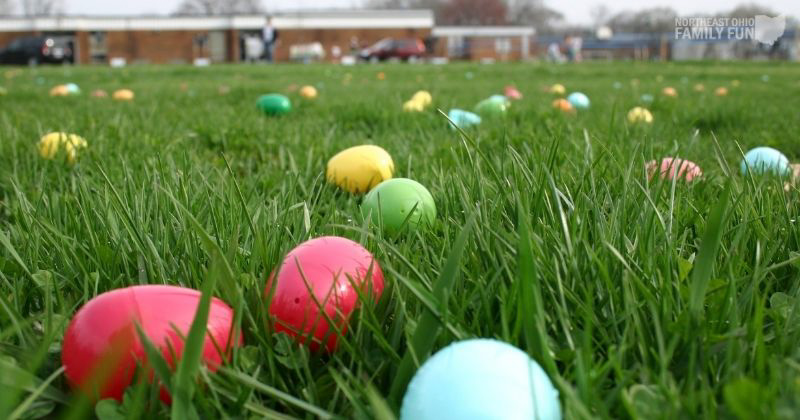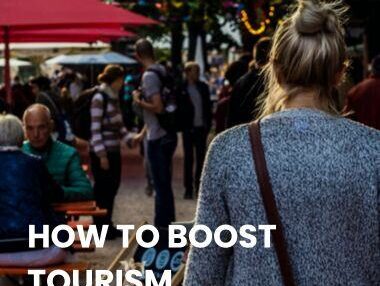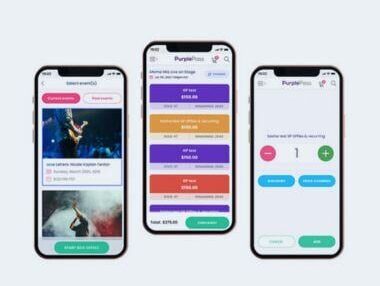7 Effective Ways to Advertise and Plan a Community Easter Egg Hunt
Whenever springtime begins to shed its winter coat, many of us gear up for heading back outside and enjoying this refreshing season. A favorite outdoor activity for numerous children and families during spring is the Easter egg hunt.
Successfully hosting and planning a community Easter egg hunt can be loads of fun for the kids and relatively easy for the parents, especially if you have a great plan. With a few ground rules in place and a little buy-in from local parents and the community, this annual tradition could become an anticipated event for many years to come.
1. Plan early and get the community involved
With most community or group activities, it’s necessary to have a fairly detailed or cohesive plan which addresses who, what, when, where, and even why. For an event like an Easter egg hunt, the key is communicating the plan with the others early and often.
This is especially crucial if you want to partner with local vendors or sponsors, depending on the size of your community event.
Not only will families appreciate the information about the egg hunt, but they will often have valuable insight which can help the entire event run smoothly. Plus, if you want parents to buy in, provide eggs and treats, and participate in the event, you’ll want to be as inclusive as possible. This event should be presented as a benefit for everyone involved, in order to garner long-lasting support.
Planning early is also important because
- Your event doesn't collide with other community events
- Families can prepare to attend your event
- It gives the community something to look forward to
2. Provide Accessible Info on Your Event
Although providing the information is usually one of the first parts of the planning phase, it’s important to remember to regularly communicate and provide comprehensive information about the egg hunt to parents and the community. Of course, time and place, including the date, are necessary, but you'll also want to include key details which can help parents decide about their kids' involvement.
You can include information about prizes awarded, age groups, community organization and sponsorship, and any other information which will serve the crowd you’re looking to draw. Also, be specific about the location, especially if the event is in a larger community space like a park.
Some tips for providing necessary information that is easily accessible:
- Create an event website
- Create a Facebook event
- Post up flyers around town with all the information
- Create articles or PR about your event...which brings us to the next point...
3. Advertise the Event
Getting the word out usually means spending some time communicating with known participants or supporters who you know will be interested. It’s also important to reach out to the families and groups who may want in on some egg action, but haven’t been to previous events or may be new to the area.
These families, or others who live just outside of your neighborhood radius, may be the perfect addition, but won't know to show up unless there are flyers and posters displayed in public.
Local businesses, coffee shops, libraries, and other popular locations can offer great outreach possibilities. Plus, you’ll keep the event fresh in the minds of those already planning on attending.
For advertising, consider:
- Traditional marketing (flyers, banners, cards, etc.)
- Direct mail
- Digital ads or websites
- Google Calendar
- Posting to your community calendar
- Partnering with local vendors and businesses to help advertise your event
- Advertising at schools and/or churches
4. Leverage Online Resources
Another important tool for getting the word out is social media and online resources like search engine results. Advertising online with certain keywords included can help to create an even broader audience for the Easter egg hunt.
Local online community forums and social groups are also excellent spots to drop digital flyers. Spreading the news of a fun, an outdoor event often takes just a few endorsements or shares to get the wheels rolling. Plus, think about your target audience of parent participants and consider the sites and searches they might use online, too.
Plus, it’s a great idea to create an online event page where parents can RSVP, find out more specific information, and become more involved with the process. If you have a large community, additional help will be welcomed and needed.
5. Location, Location, Location
This one works on two fronts. First, make sure you have an adequate and appropriate location for the big egg event. Will the participants have enough space? Is there a chance other people not participating will be nearby? Is there a community space or park that can be used which also serves as a benefit to the community? When an event helps to highlight how great a community is, everyone benefits.
Secondly, you’ll want to scout out where on the property or location you’ll hide the eggs. Logistically consider how to hide the eggs so they’re evenly distributed and appropriately hidden for the age group(s) participating.
Keep in mind, this will all take time to set up, so give yourself adequate prep time. Ask parents for eggs, treats, or donations early enough so they can be collected and prepared, not to mention hidden the day before.
6. Rules and Regulations
Develop some fair and equitable rules for all participants. Time limits, available areas to search, parental assistance, and participant age groupings are all important areas to have set parameters before the event starts. Then, post the rules so everyone can see them.
It’s also important to consider what treats and prizes will be put in the eggs. Ask parents about allergies or preferred ingredient choices and collaborate on the best options. Some eggs can have non-edible prizes, too, in case allergy or dietary concerns are of high priority. Once again, involving parents is an excellent way to build community strength and also leaves everyone feeling as if their voices or concerns have been heard.
7. A Change of Plans
Last, but not least, it’s good to have a contingency plan in place, in case there’s bad weather or other uncontrollable events happen. The elements can be unpredictable and it would be a shame to have to cancel with no other alternatives after putting in so much work.
With a few key plans and considerations in place, a community Easter egg hunt can be a fantastic event for bringing people and communities together. Similar Easter celebrations can also become exciting and easy to plan annual events and may offer more excitement for the whole family. No matter your choice, remember to give it your best and have fun.






